- Academic Programs & Support
- Academic Enrichment
- Engagement at WCU
- Examples of Engagement
Examples of Engagement
Art
Youth Art Month
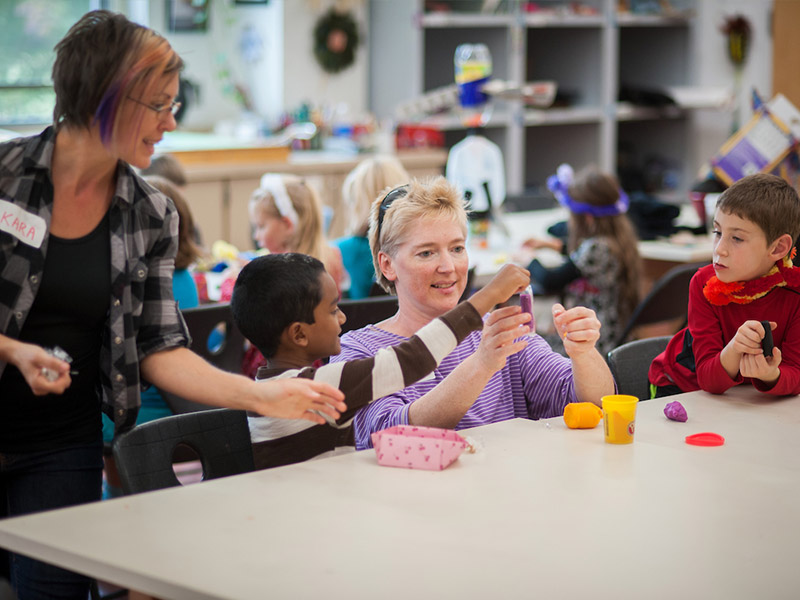
Youth Art Month attracts about 800 visitors to Bardo Arts Center each March (primarily families of K-12 public school students whose work is displayed). About $800 in awards are given out (funds are raised by WCU Art Ed Club) and a reception/ceremony is held for 2 hrs. Area art teachers are recognized and first place artworks are framed/photographed and exhibited in the Killian building into perpetuity.
Cast Iron Pour
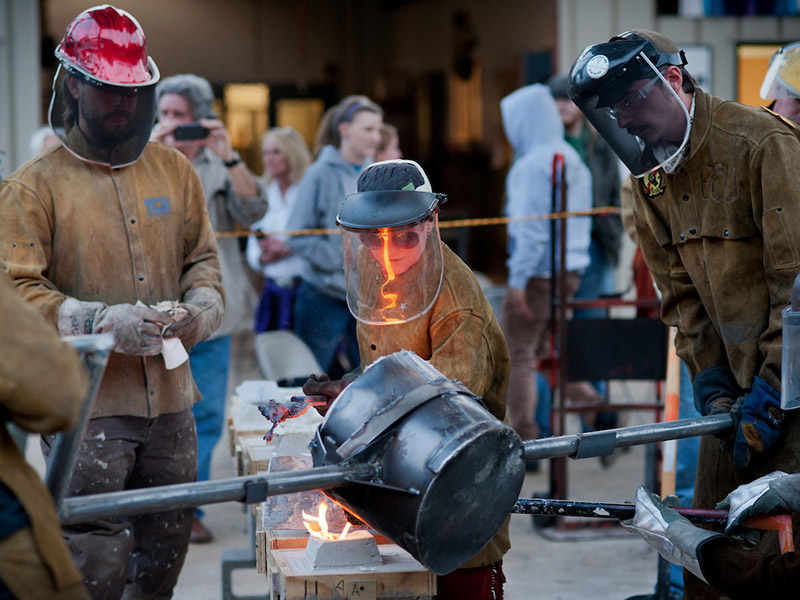
Cast Iron pour events are held at Green Energy Park, Dillsboro NC, Brevard College
and here at Western Carolina Univ. Casting metal is one of the oldest forms of art
making. It is a multi-layered process and requires a lot of involvement from students
and staff. Faculty Justin Kennedy works foundry/metal casting into his curriculum. We also invite the public in whatever area we are working in to also participate.
Therapeutic Arts Program
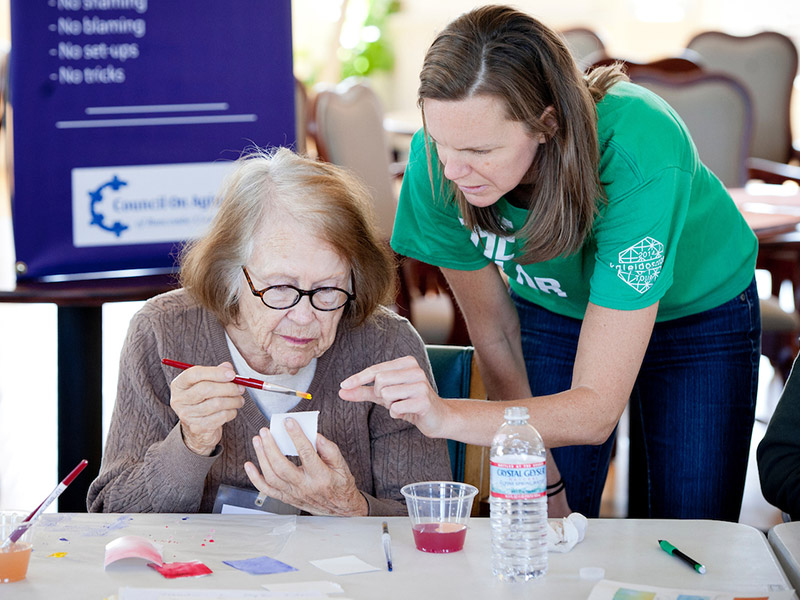
Dr. Goins along with first year MSW student Jenn Johnson are working to offer a free therapeutic arts program to 72 low income older adults residing in Asheville. The project is in partnership with the Council on Aging of Buncombe County and The Geezer Gallery in Portland, OR. The project examines the effect of participation using a randomized control to assess health-related quality of life.
Education
Rocket to Creativity
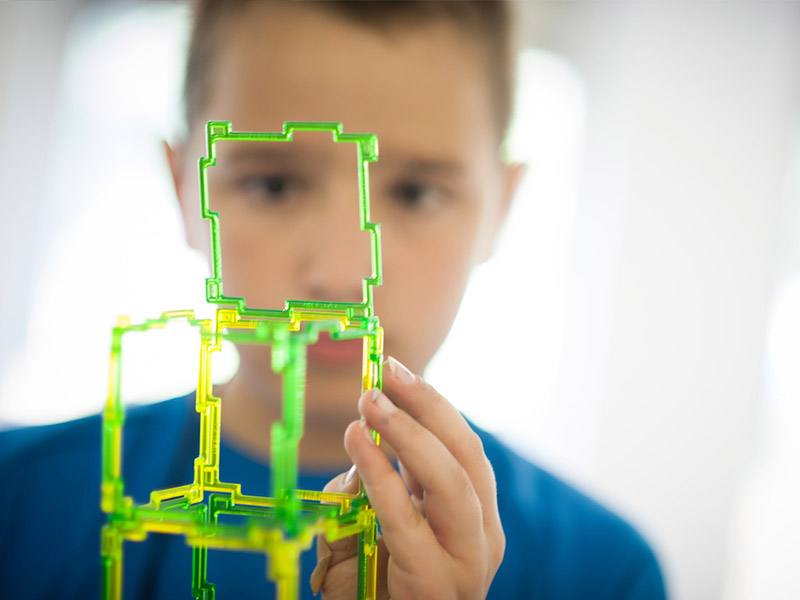
Dr. Lisa Bloom and Dr. Sharon Dole along with WCU students continue to offer Rocket to Creativity, a one week experience in creative thinking and problem solving on the WCU campus each summer. The camp provides an exciting summer enrichment opportunity for children 8-14 and allows WCU students to gain experience promoting creative thinking and problem solving through problem-based learning.
Growing Minds @ WCU
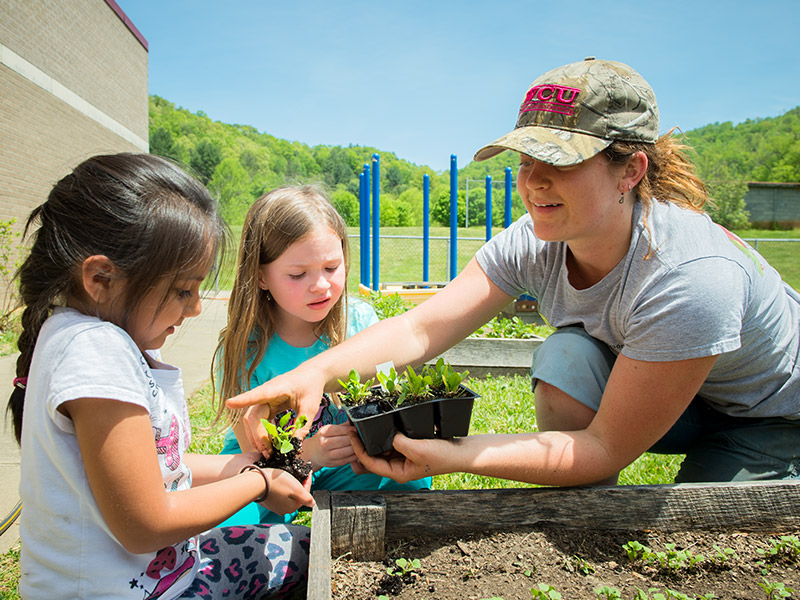
The Local Food and Farm to School Education Project integrates knowledge of education and nutrition in order to help implement best educational practices and address health and economic needs in the WNC region. Through this project, WCU students are observing, assisting, and leading local food cooking classes, cafeteria taste tests, gardening lessons, farm field trips, and farmer classroom visits.
Community Table
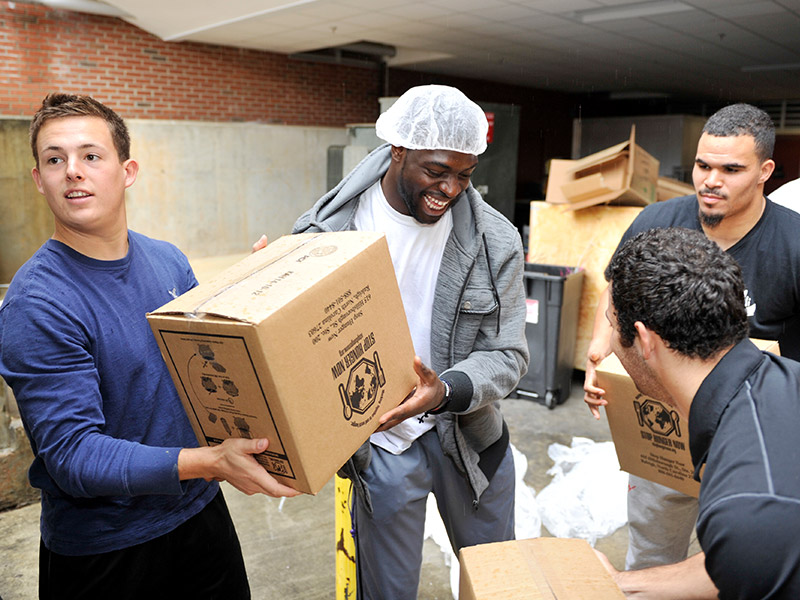
Staff member Brian Boyer, along with students from the Leadership Class the Band of Brothers, provided the staff for the Friday dinner shift at the local Community Table. Students were responsible for serving and plating of the food, distributing beverages, washing dishes, and for compiling and distributing food boxes for local families in need of items to supplement their household items.
Environment and Sustainability
Salamader Population
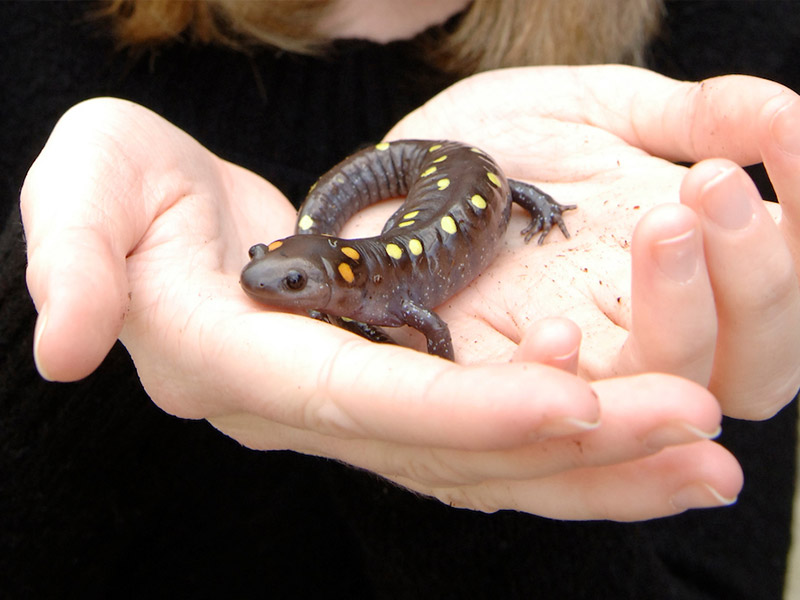
Biology faculty and students are involved in long term monitoring of salamander populations in the Great Smoky Mountains National Park and Nantahala National Forest. In this project, they monitor salamander populations at sites in GSMNP and in Nantahala National Forest. They also collect data on both general salamander abundance, and on movements of salamander hybrid zones at these sites.
Animal Relief Fund
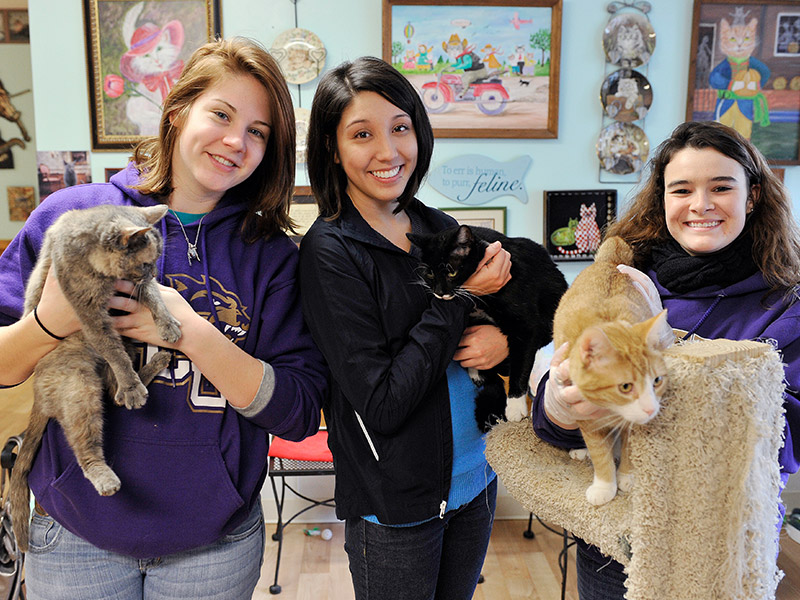
Mary Adams along with student volunteers from WCU supervised by Jane Finneran (ARF-Animal Relief Fund), continue to seek grant funding to reduce pet overpopulation and eliminate euthanasia of cats and dogs at the county shelter. Students created public materials and perform statistical mapping of pockets of pet overpopulation for Adams's English 303 class: Introduction to Professional Writing.
Natahala National Forest
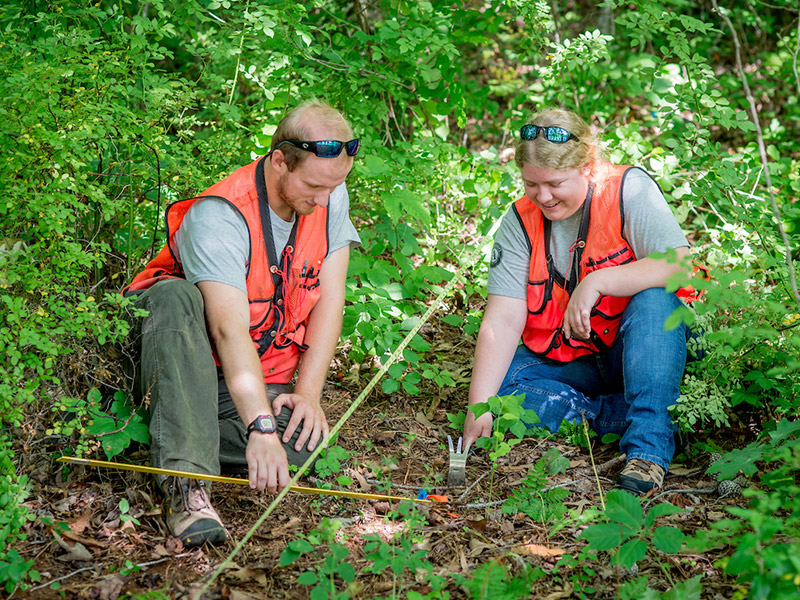
Ben Tanner, Rob Young, and Beverly Collins completed a project at Panthertown Valley within the Nantahala National Forest. Project data were used to construct a record of changing plant communities within the bog over the past 9000 years and were also used to elucidate changes in local climate conditions over that time period.
Healthcare
Musculoskeletal Study
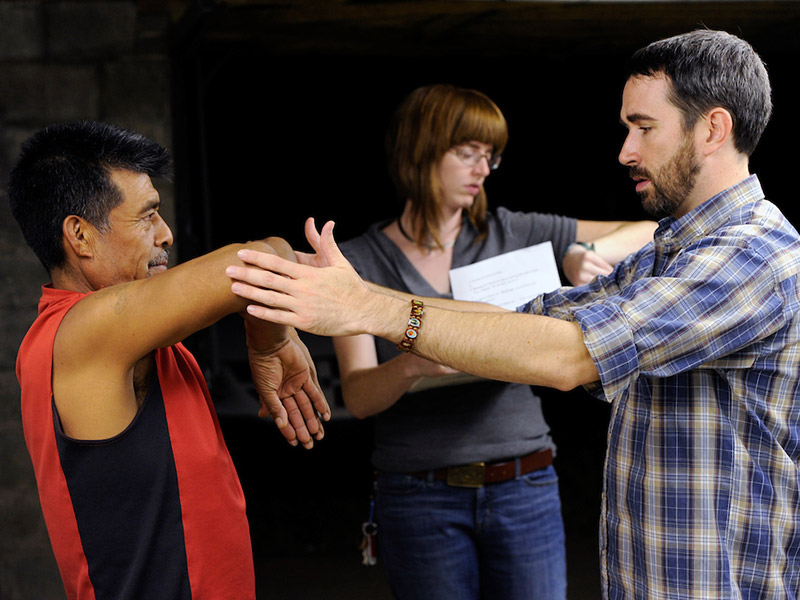
Faculty Karen Lunnen and John Carzoli, along with four Doctor of Physical Therapy students engaged in a collaborative project with multiple state and national agencies to assess the needs of migrant and seasonal farm workers in western NC as well as survey, screen and analyze musculoskeletal data received from patients to develop preventative materials.
Volunteer Work
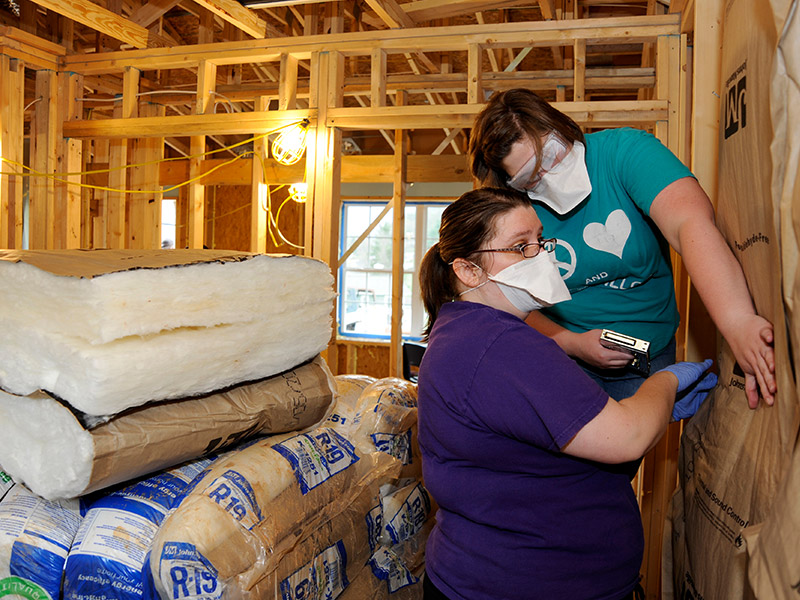
Faculty Michael Razdrh has students complete an assignment that requires them to volunteer five hours of their time at a local Human Service Related Agency or organization, one that deals with people or the service of people. Examples include Community Table, Full Spectrum Farms, Habitat for Humanity (out of Franklin), Mountain Trace Nursing Care, Skyland Care Center, Social Service Agencies, etc.
Data Collection
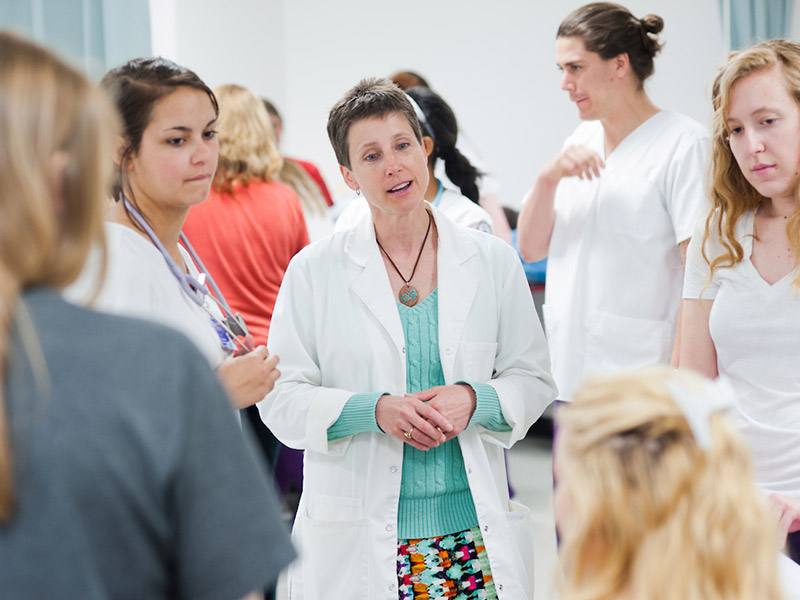
Dr. Vallire Hooper and Dr. Kae Livsey co-taught the evidence based nursing practice course during Spring 2015 in the Accelerated BSN program. Students enrolled in the course served as data collectors for a specific hospital wide quality improvement data collection project that was underway at the clinical agency.
Innovation and Technology
SBTDC at WCU
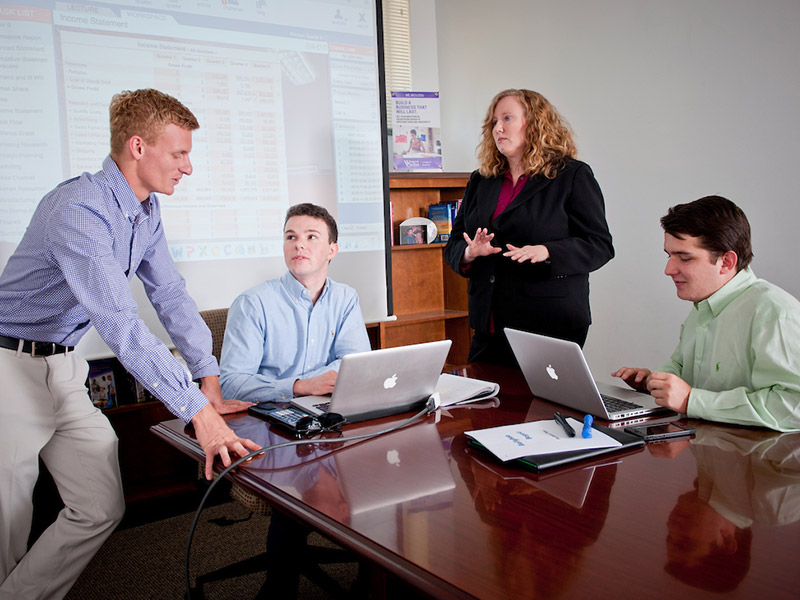
The SBTDC at WCU and faculty from the College of Business continue to provide project based research and assistance to area businesses. Over 60 projects were delivered to business owners and innovative entrepreneurs and this level of engagement in the business community continues to move companies forward with growth and expansion plans using data derived from research. Accurate industry information leads to better business decisions and an increase in economic development for the region.
Capstone Courses

Each student in the College of Business at WCU will be given the opportunity to apply their learning in a real-world environment by working with a business in the western North Carolina region prior to graduation in a "capstone" course. This experience benefits the local business by providing them with resources not easily available and benefits the students by being able to "fit-together" the various business courses studied toward a group-goal and secondly, producing an artifact suitable for presentation at job interviews after graduation.
Regional Manufacturing
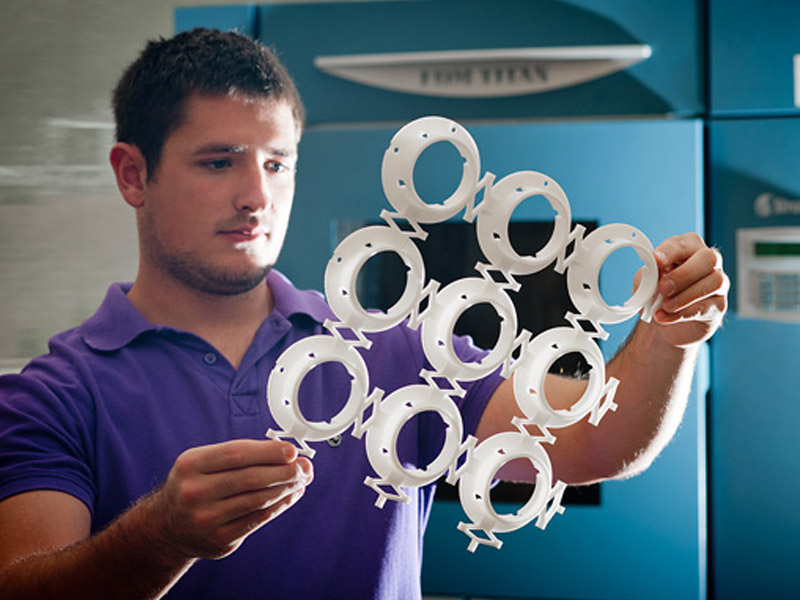
The semester engagement project in ET 362 provided valuable information about regional manufacturing. The main goal of the completed project was to map a web of industry clusters in the region with the additional information of logistical data about those industries. In order to map out the networks of technical clusters, each group conducted interviews with manufacturing industries in Western NC. They compiled the results in a matrix to determine if there were indeed manufacturing clusters in the region.
Recreation and Tourism
Habitat Spring Festival
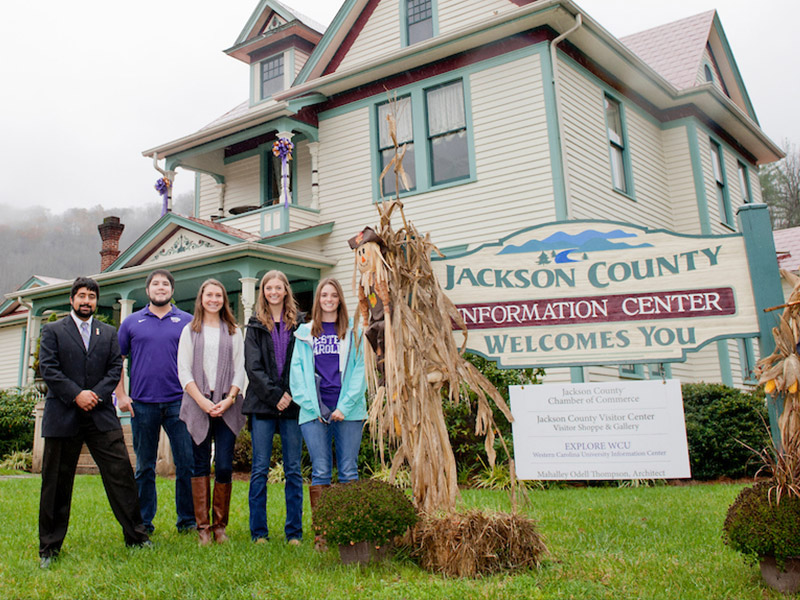
The festival purpose was to raise awareness of and provide students “hands-on” learning experiences. Student groups recommended festival ideas and presented their findings to Habitat for Humanity in Jackson County representatives. The best festival components from each project were selected to include in the event. Using the best festival components list, faculty Carroll Brown and Mary Morse designed a festival project for HT436 Tourism Planning & Development students.
Tourism Economic Footprint

Steve Morse, economist, and director of the Hospitality and Tourism program with students from senior level capstone class, collected and analyzed tourism economic impact data to generate a custom one-page "Tourism Economic Fact Sheet" for each of the 26 counties in the WNC economic development footprint. This fact sheet tracked tourist spending in each county for the last five years and provide a snap shot of the economic importance of tourism to each county's economy.
Active Routes to School
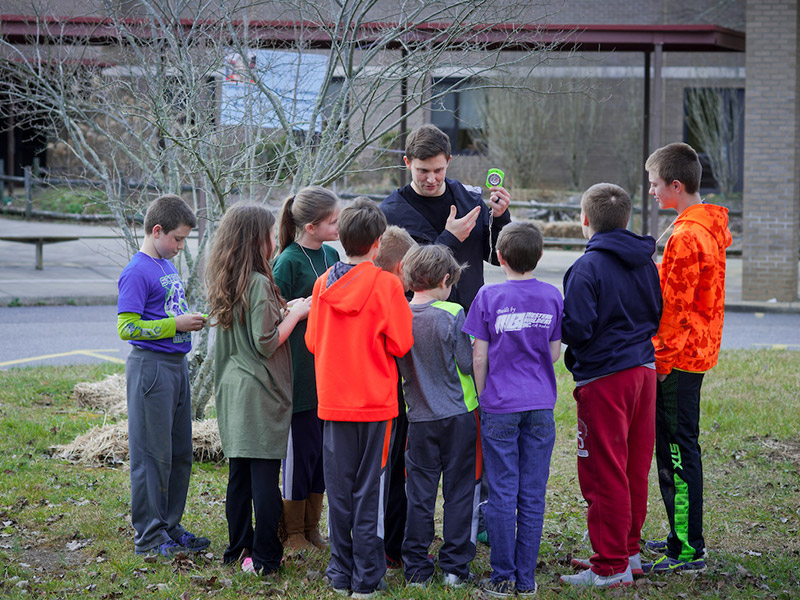
Faculty Debby Singleton and Active Routes to School (ARTS) coordinator, Jackie Moore, along with students from the Parks & Recreation Management and Health & Physical Education programs, will work collaboratively to create, implement, staff, and evaluate new and ongoing ARTS programs in the region. ARTS is part of the NC Safe Routes to School Program, a partnership between the NCDOT and NCDPH. The programs include; before and after school walking/activity clubs and school based programs focused on increasing physical activity.